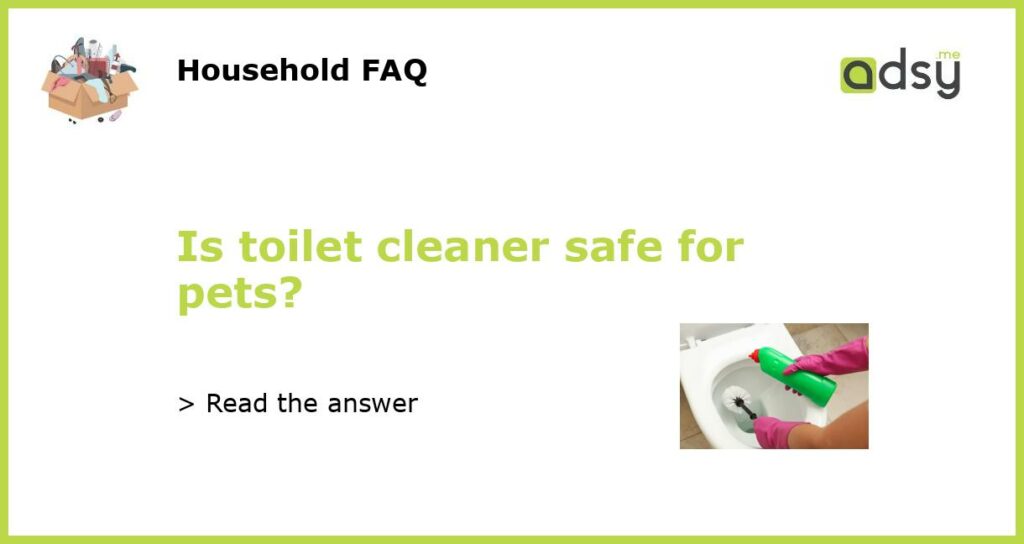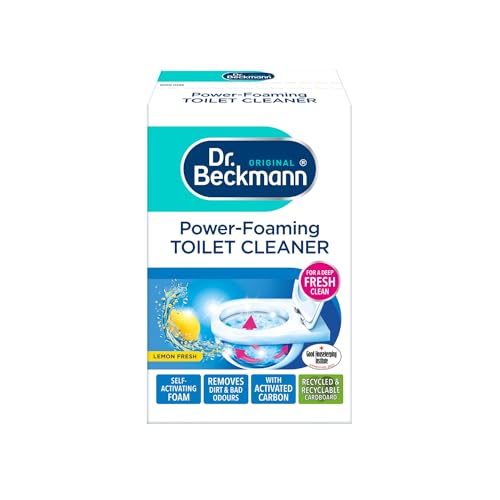Is toilet cleaner safe for pets?
Toilet cleaner is a common household cleaning product that many pet owners use regularly. However, it is important to consider the safety of these products when it comes to our furry friends. While toilet cleaners are generally safe if used correctly, there are some factors to keep in mind to ensure the well-being of our pets.
The ingredients in toilet cleaners
Most toilet cleaners contain a combination of chemicals that are designed to dissolve dirt, remove stains, and kill bacteria. The specific ingredients can vary depending on the brand and type of cleaner, but some common chemicals found in toilet cleaners include chlorine bleach, ammonia, and hydrochloric acid.
These chemicals are effective for cleaning and disinfecting toilets, but they can be harmful to pets if ingested or if they come into contact with their skin or eyes. Chlorine bleach, for example, can cause irritation and burns, while ammonia can be toxic if inhaled or ingested. Hydrochloric acid, another common ingredient in toilet cleaners, is corrosive and can cause severe burns.
Pet safety precautions
When using toilet cleaner in a household with pets, it is important to take certain precautions to ensure their safety:
1. Keep pets away during cleaning: While cleaning the toilet, it is best to keep your pets out of the bathroom. Close the door or use a baby gate to prevent them from accessing the area until the cleaning is complete and any residual cleaner has been rinsed away.
2. Rinse thoroughly: After using toilet cleaner, it is crucial to thoroughly rinse the toilet bowl and surrounding surfaces with clean water. This helps remove any remaining cleaner, reducing the risk of accidental exposure to your pets.
3. Store cleaners properly: Keep toilet cleaners and other potentially harmful cleaning products securely stored in a location that is out of reach of pets. Use childproof locks or cabinets to prevent accidental access.
4. Read and follow instructions: Always read and follow the instructions provided by the manufacturer on the toilet cleaner’s packaging. This includes any recommended safety precautions or specific instructions for pet owners.
Pet-friendly alternatives
If you are concerned about using toilet cleaners around your pets, there are several pet-friendly alternatives that can be used to keep your toilet clean and fresh:
1. Vinegar and baking soda: A mixture of vinegar and baking soda can be an effective and safe cleaner for toilets. Simply sprinkle baking soda in the bowl, add vinegar, let it fizz, scrub, and then flush. This combination is non-toxic and eliminates odors.
2. Enzyme-based cleaners: Enzyme-based cleaners are designed to break down organic matter and eliminate stains and odors. They are safe for use around pets and can be an effective alternative to traditional toilet cleaners.
3. Natural cleaning products: There are many natural cleaning products available on the market that are safe for pets. Look for products that are free from harsh chemicals and are specifically labeled as pet-friendly.
When to seek veterinary advice
If your pet accidentally ingests toilet cleaner or comes into contact with it in a way that causes irritation or burns, it is important to seek veterinary advice immediately. Signs of potential toxicity or injury may include vomiting, drooling, difficulty breathing, redness or burns on the skin or eyes, or any other abnormal behavior.
In addition, if your pet has pre-existing respiratory issues or sensitivities, it is always best to consult with your veterinarian before using any cleaning products in your home.
In conclusion
Toilet cleaners can be safe for pets if used correctly and with proper precautions. It is important to keep pets away during cleaning, rinse thoroughly, store cleaners properly, and always follow the instructions provided by the manufacturer. If concerned, consider using pet-friendly alternatives such as vinegar and baking soda or enzyme-based cleaners. If any adverse reactions occur, seek immediate veterinary advice. By taking these steps, you can ensure the well-being of your pets while keeping your toilet clean.






